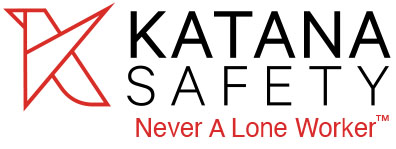The Rise of Decentralized Clinical Trials: What it Means for CRO’s and Lone Worker Safety
Background
The clinical research industry is undergoing a significant transformation. Spurred by technological innovation, regulatory flexibility, and growing demands for patient-centric care, decentralized clinical trials (DCTs) are becoming an increasingly dominant model. While DCTs offer greater efficiency and access to more diverse patient populations, they also introduce new challenges, particularly around lone worker safety for Contract Research Organizations (CROs).
As trials move beyond the controlled environments of hospitals and into patients’ homes or community settings, CROs must rethink how they manage and protect their dispersed workforce. With mobile staff playing critical roles in DCTs, the need for remote safety protocols and emergency response tools has never been greater.
The Shift Toward Decentralization: By The Numbers
Over 1,000
The FDA reported that over 1,000 clinical trials during the COVID-19 pandemic implemented at least one decentralized component, marking a sharp increase from pre-pandemic levels. (-FDA)
2030
A Deloitte study estimates that by 2030, nearly all Phase III trials will be hybrid or decentralized in nature. (-Deloitte)
70%
According to a 2023 survey by Clinical Trials Arena, 70% of sponsors and CROs plan to adopt decentralized elements in their trials within the next two years. (-Clinical Trials Arena)
CROs and the Rise of Lone, Remote Workers
In decentralized trials, much of the work once confined to brick-and-mortar research sites is now being carried out by remote personnel. These include:
- Clinical Research Associates (CRAs) monitor trial sites across broad territories
- In-home nurses or mobile phlebotomists administering treatments or collecting biological samples
- Study start-up specialists are setting up remote trial locations
- Field-based medical monitors oversee patient safety
These professionals often work alone, travel frequently, and visit unfamiliar or uncontrolled environments—all of which increase their exposure to potential risks.
Regulatory Responsibility: ICH-GCP and the FDA/EMA Perspective
CROs operate under strict international and national regulatory guidelines, most notably the International Council for Harmonisation of Technical Requirements for Pharmaceuticals for Human Use (ICH) – Good Clinical Practice (GCP) standards. These guidelines require CROs and sponsors to ensure the safety and well-being of all trial participants and staff.
Additionally, the FDA and EMA have issued guidance emphasizing that DCTs must uphold the same quality and safety standards as traditional trials. This includes:
- Ensuring staff are adequately trained and supervised, even in remote settings.
- Providing mechanisms for reporting adverse events or safety concerns.
- Implementing safeguards for data security and physical safety.
Failure to meet these expectations can result in compliance violations, trial delays, or even regulatory sanctions.
How CRO’s Are Addressing the Safety Challenge
Forward-thinking CROs are already taking proactive steps to protect their lone workers in a decentralized landscape:
Enhanced Training Protocols
- Field staff are trained in situational awareness, emergency response, and self-defense in some cases.
- Companies are also using virtual simulations and scenario-based modules for remote workers.
Check-In and Monitoring Systems
- CRAs and nurses are often required to check in with supervisors before and after each visit.
- GPS tracking and route mapping tools are being deployed to provide visibility into field activity.
Adoption of Remote Emergency Devices
Perhaps the most significant development is the increased use of personal safety devices that allow lone workers to discreetly summon help in an emergency.
- Solutions like KATANA Safety, a discreet, app-connected panic device, are gaining traction across the clinical research industry.
- The device attaches to a smartphone and includes a silent alarm, GPS location sharing, and 24/7 emergency response.
- In high-risk situations, such as entering a patient’s home alone, this kind of technology provides a critical layer of security.
Mental Health Support for Remote Staff
Working alone and traveling frequently can take a toll on staff well-being.
- Some CROs are offering teletherapy, wellness apps, and virtual peer support groups to help maintain mental health.
Looking Ahead: Safety as a Strategic Imperative
As the decentralization of clinical trials accelerates, CROs must view lone worker safety not as a compliance checkbox but as a strategic imperative. Beyond fulfilling regulatory requirements, investing in safety technology improves employee confidence, reduces turnover, and protects the integrity of clinical operations.
By embracing tools like KATANA Safety and reinforcing support systems for remote staff, CROs can position themselves as responsible and future-ready partners in the evolving clinical research landscape.
Want to learn more about how to protect your decentralized trial workforce? Explore the safety solutions KATANA offers to keep remote and field-based staff secure, no matter where the work takes them.
